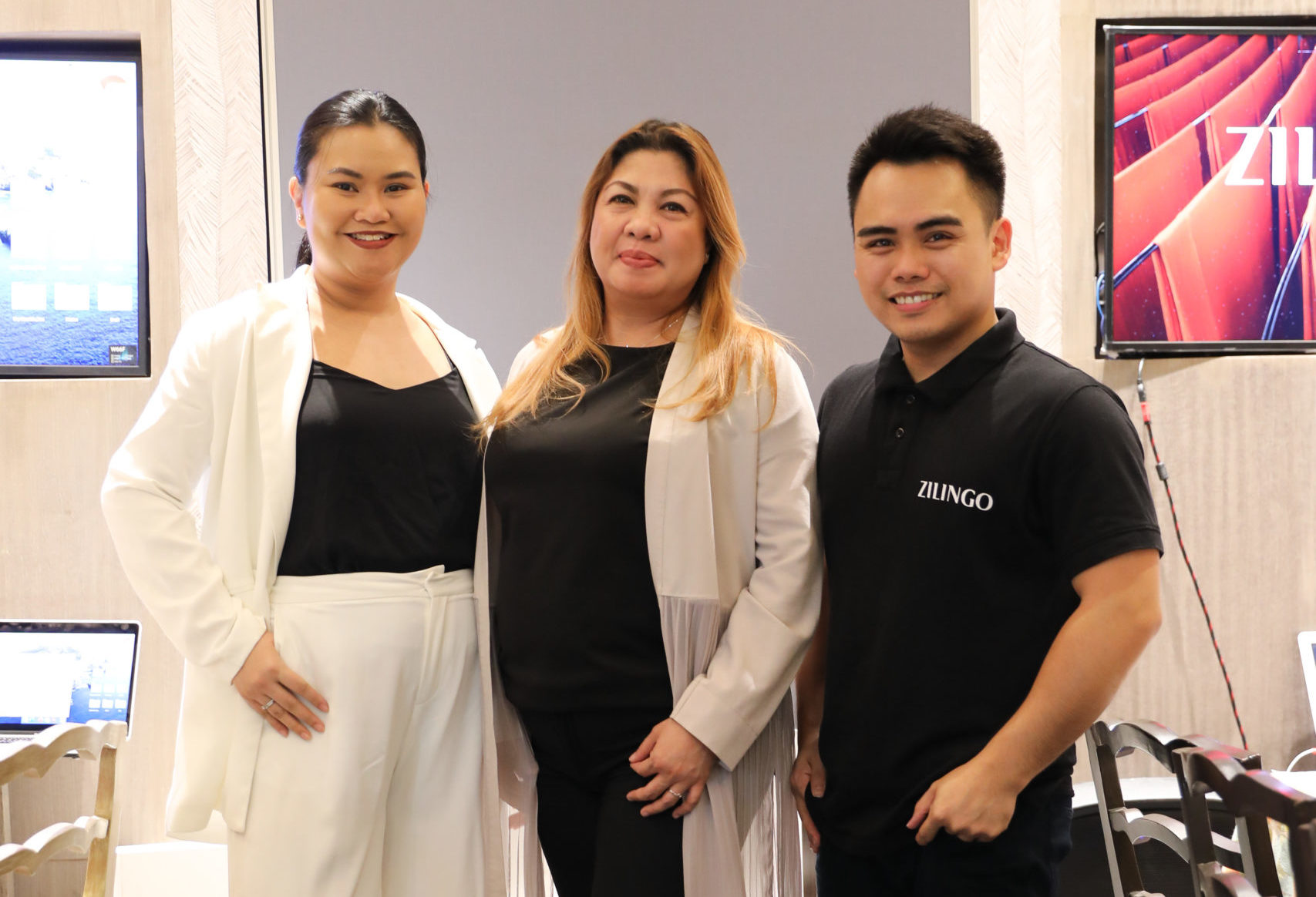
(From left) Ryza Dipatuan-Razo, marketing director; Shiela Mauricio, head of commercial; and Edryan Lorenzo, PR of Zilingo Philippines
To find your market in an industry as competitive as online retail, sometimes, the best strategy is to avoid going up against giants, and simply train your sights on helping the little players.
At least, that’s the route that fashion-technology platform Zilingo is taking, with the launch of its new roster of B2B (business-to-business) services. Initially established as a marketplace, Zilingo has made it its mission to help retailers in the fashion and lifestyle industry run their businesses more efficiently “by using smart, technology-led solutions.”
“Zilingo aims to reimagine the supply chain in its entirety and aggregate all parties within the same platform by offering services and software that can help businesses do better—which has been the brand’s focus since day one,” says Sheila Mauricio, Zilingo Philippines’ head of commercial.
That “reimagination,” adds Zilingo Philippines’ marketing director Ryza Dipatuan-Razo, means making it easier for a retailer to go through the fashion supply chain by reducing the number of processes he or she has to go through.
“In an era of tight margins and fast-moving fashion, retailers and manufacturers need to be more connected,” Razo says. “Yet the industry is disaggregated, with a lot of middlemen in the supply chain.”
Zilingo’s solution: A cloud-based end-to-end platform that cuts out the middlemen, therefore enabling raw material suppliers to connect directly with manufacturers, who can deal straight with retailers, who can then reach out to shoppers more easily. Launched last January here in the Philippines, the company’s business tools can also assist micro, small and medium enterprises (MSMEs) in the fashion industry with their product development, procurement, “trendcasting,” marketing, logistics, customer analytics, and fintech needs.
“That’s why we call our solution a holistic approach,” Mauricio says.
Founded in 2015 by Ankiti Bose and Dhruv Kapoor in India, Zilingo first offered a B2C (business-to-consumer) platform to help fashion merchants with their distribution. A few years after, the company launched Zilingo Asia Mall, an online portal that connects merchants directly to local suppliers and manufacturers, as well as those in other markets where Zilingo is present, such as India, China, Korea, Cambodia, Indonesia and Vietnam.
Here in the Philippines, Zilingo set up shop in 2019. Instead of competing directly with more established marketplaces, such as Shoppee and Lazada, the company aims to instead “complete the ecosystem” of online fashion and lifestyle retail, while helping MSMEs address their pain points.
“We want to level the playing field for Philippine MSMEs to efficiently operate and compete in the global market,” Razo says.

